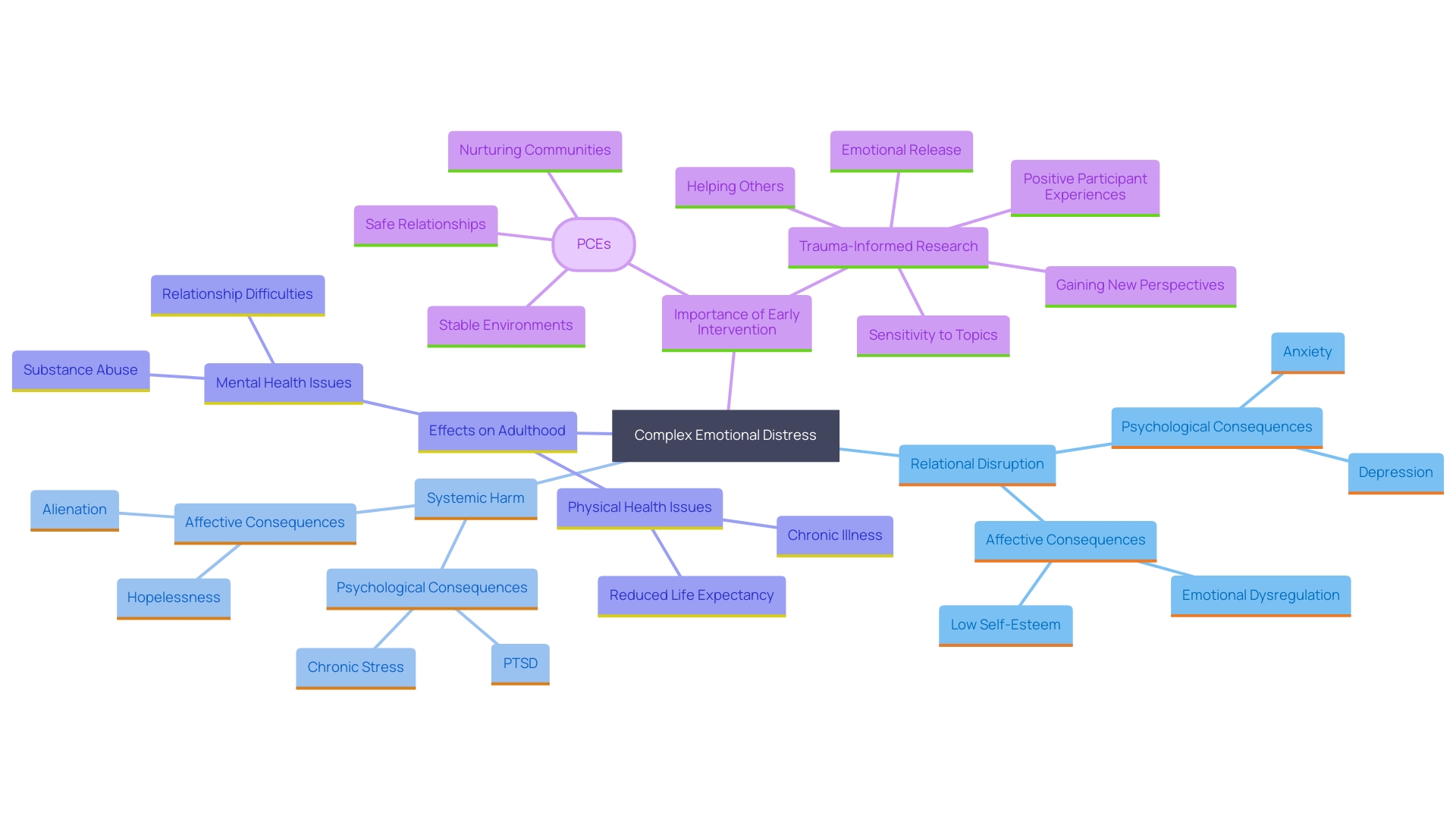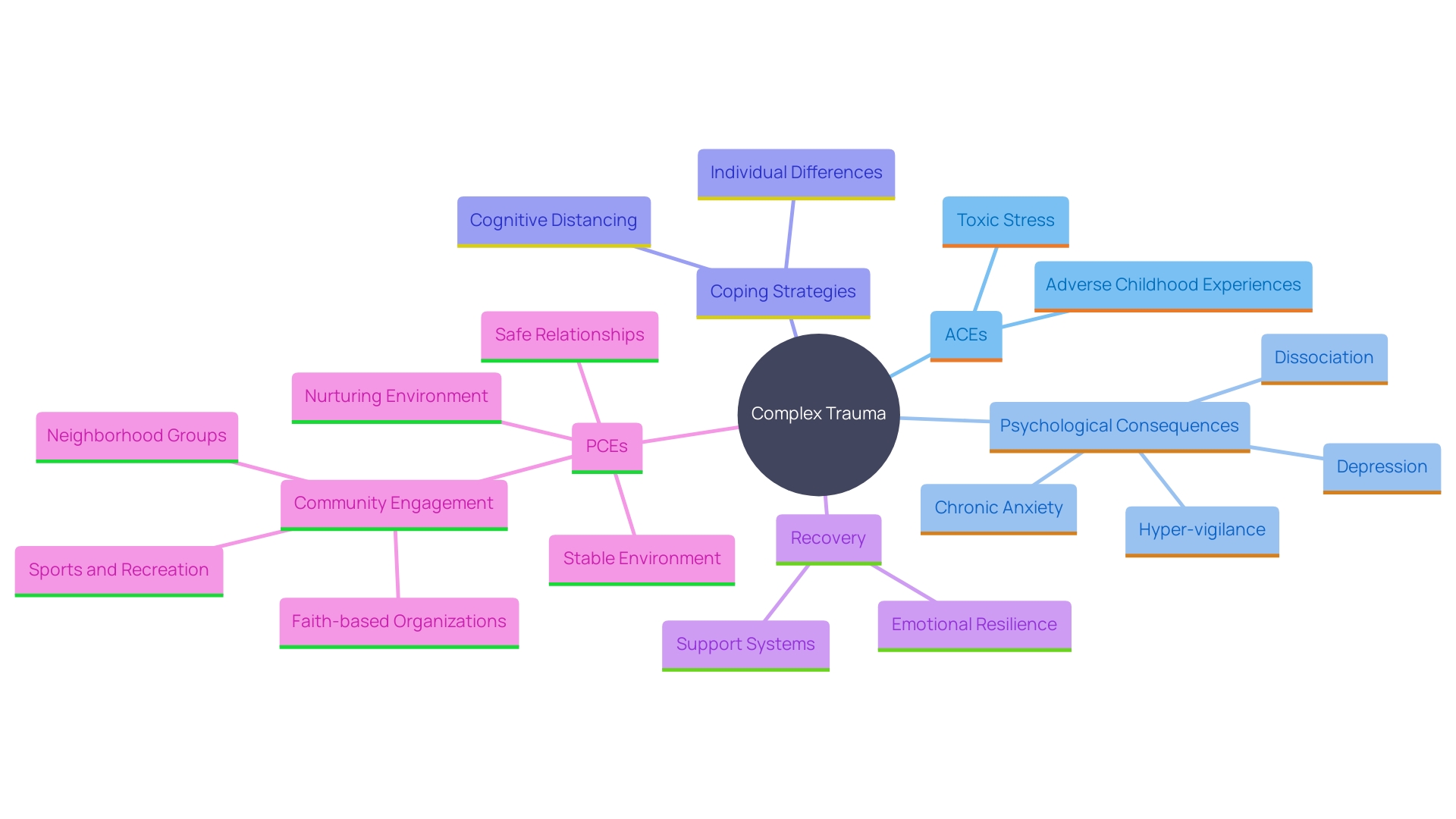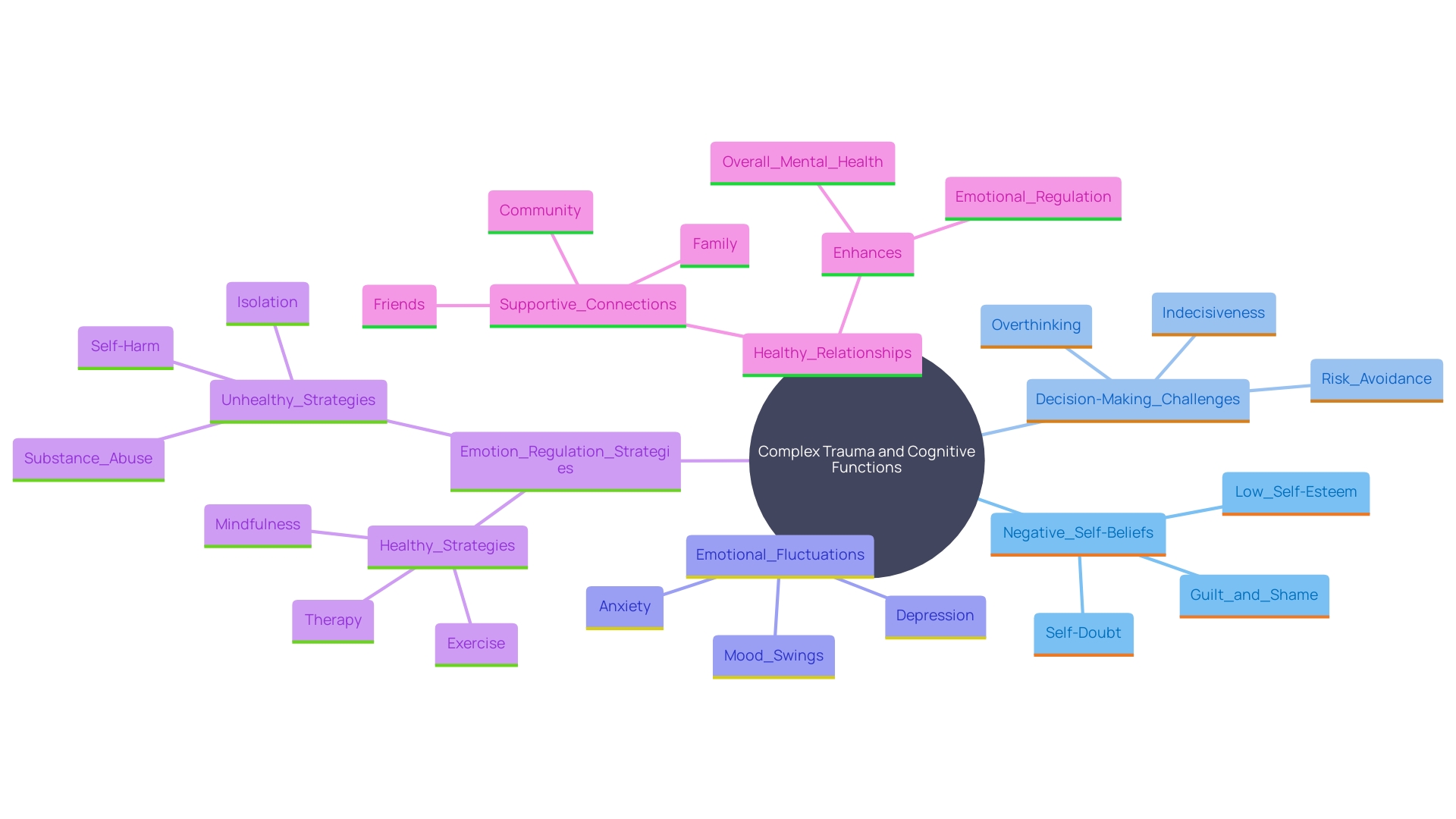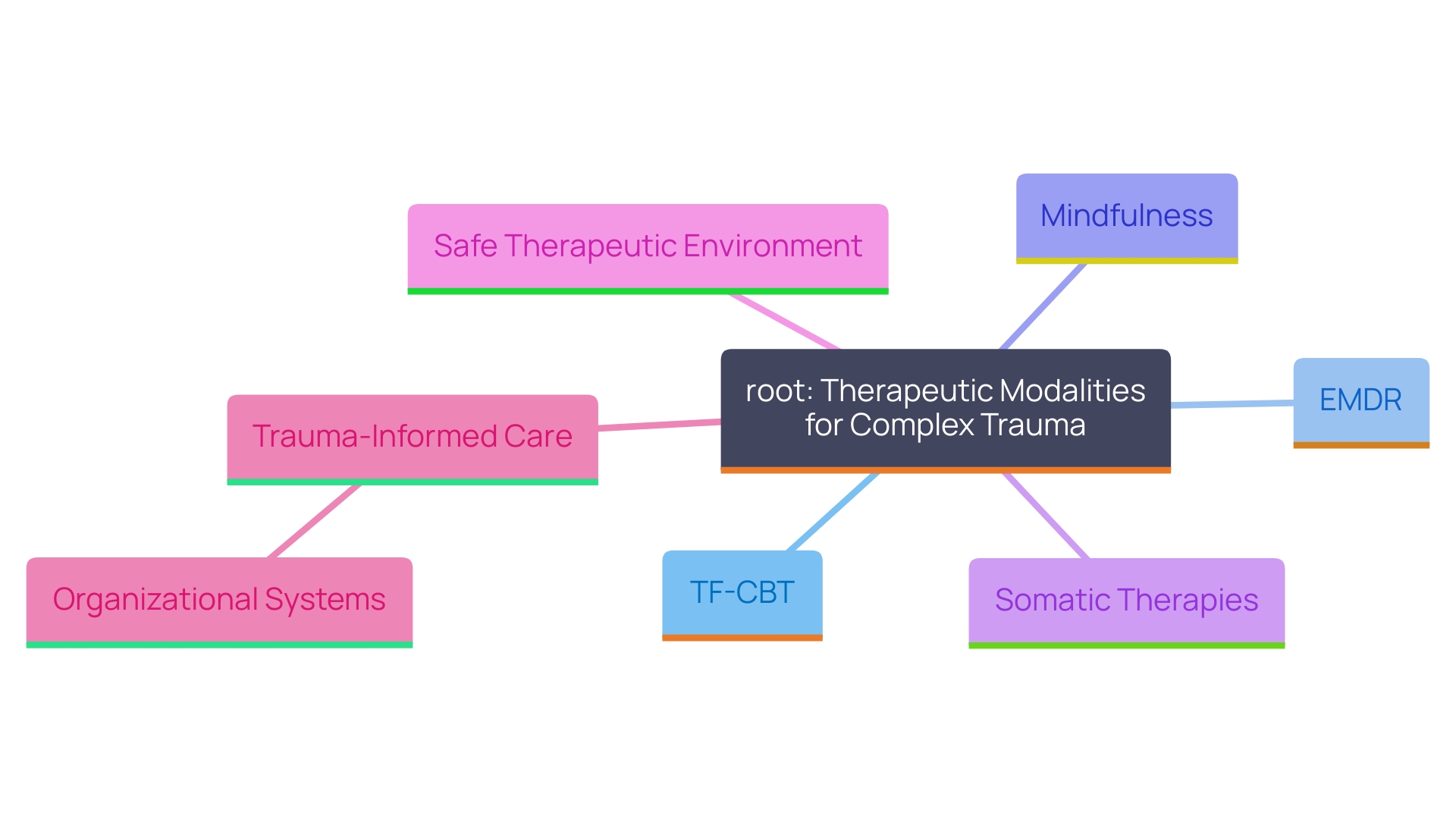PLEASE NOTE:
While the following article relates to your Google search, the services and methods at Goodwin Hypnosis may differ from those mentioned below. Since 2007, we have helped thousands of clients to overcome emotional and behavioral challenges when all else had failed. According to many of them (and their referring healthcare providers), our methods are faster than talk therapy, easier than willpower, and safer than medication. If you’re ready to resolve your issues, skip the article and visit the rest of our website, where you can learn about our unique approach, watch client testimonial videos, and discover how working with us one-on-one could be the solution you’ve been searching for.
We can help you with a variety of issues relating to emotional trauma. While we don't diagnose disorders like PTSD, we have helped hundreds of clients to overcome a wide range of traumatic experiences and their negative effects with methods that are more efficient and comfortable than CBT or EMDR. If you would like to learn more about working with us one-on-one to clear your trauma, click here.
Introduction
Complex trauma weaves a complex tapestry of psychological and emotional challenges, often rooted in prolonged and repeated exposure to distressing events. Unlike single-incident trauma, these experiences—ranging from ongoing abuse and neglect to systemic violence—can significantly alter an individual's emotional and psychological framework, especially when occurring during formative childhood years. Recognizing and understanding the various types of complex trauma, such as relational and systemic trauma, is vital for fostering effective mental health interventions and support systems.
The psychological impact of such trauma is profound and enduring, manifesting in chronic anxiety, depression, and difficulties with emotional regulation. These psychological repercussions can lead to a state of hyper-vigilance, dissociation, and a pervasive sense of isolation, significantly affecting an individual's quality of life. Additionally, adverse childhood experiences (ACEs) can undermine a child's sense of safety and stability, with long-lasting effects on health and well-being that extend into adulthood.
Complex trauma also takes a toll on cognitive functions and emotional well-being, leading to negative self-beliefs, impaired decision-making, and emotional turbulence. Effective emotion regulation and healthy relationships are crucial for maintaining mental wellness and promoting recovery from trauma.
Addressing complex trauma requires a multifaceted approach that integrates various therapeutic modalities, such as trauma-focused cognitive behavioral therapy (TF-CBT), eye movement desensitization and reprocessing (EMDR), and mindfulness-based therapies. Creating a safe therapeutic environment and ensuring trauma-informed care within organizational systems are essential steps towards providing compassionate and effective support for individuals affected by complex trauma. Through these comprehensive strategies, we can pave the way for healthier developmental trajectories and improved life outcomes.
We can help you with a variety of issues relating to emotional trauma. While we don't diagnose disorders like PTSD, we have helped hundreds of clients to overcome a wide range of traumatic experiences and their negative effects. If you would like to learn more about working with us one-on-one to clear your trauma, click here.
Understanding the Types of Complex Trauma
Complex adversity includes the psychological and affective consequences arising from extended and repeated exposure to distressing incidents. Unlike single-incident distress, complex distress often involves multiple, layered experiences such as ongoing abuse, neglect, or violence, particularly during critical developmental periods in childhood. These formative years are crucial as they fundamentally shape an individual's emotional and psychological framework.
Understanding the various types of complex emotional distress, such as relational disruption—where trust and connection in relationships are affected—and systemic harm—where societal structures and systems perpetuate injury—is imperative. As per the National Child Traumatic Stress Network (NCTSN), the age when a child encounters distress greatly affects their understanding and enduring effect on their wellness. For instance, experiences from childhood can appear in adulthood as mental health challenges, impacting personal relationships and overall life outcomes.
Statistics show that globally, 10-30% of children and teenagers encounter at least one type of interpersonal distress, such as sexual abuse or psychological neglect, which presents a considerable risk for ongoing physical and mental health issues. This is especially troubling considering the results from various studies, showing that traumatic and stressful events are associated with comparable levels of distress across different age groups, further highlighting the necessity for early intervention and ongoing support.
As emphasized by specialists, the impacts of childhood adversity can be profound and enduring, with untreated issues potentially influencing a person's mental health well into adulthood. Strength in childhood does not always correspond to thriving in adulthood, as shown by studies indicating that previously resilient children still encounter higher risks of developing psychological disorders and facing negative physical, financial, and educational results later in life.
In conclusion, recognizing and addressing the complexities of psychological distress, especially its multiple and layered nature, is essential for effective mental health intervention and support, paving the way for healthier developmental trajectories and improved life outcomes.

The Psychological Impact of Complex Trauma
The psychological consequences of complex trauma can be profound and enduring, often manifesting as chronic anxiety, depression, and difficulties with emotional regulation. Individuals may find themselves in a constant state of hyper-vigilance, perpetually alert to potential threats, which significantly elevates stress levels. Dissociation is another common response, where people mentally detach from their emotions or surroundings as a coping mechanism. This detachment can complicate relationships and impede personal growth, leading to a pervasive sense of isolation.
Research indicates that adverse childhood experiences (ACEs) can have long-lasting impacts on health and well-being. These traumatic events can undermine a child's sense of safety and stability, with repercussions that extend into adulthood. For example, individuals with a history of ACEs are more prone to mental health issues, substance abuse, and difficulties in social functioning.
Emotion regulation is a crucial skill for managing the aftermath of trauma. Methods like cognitive distancing—visualizing a negative event as occurring at a distance or from an outsider's viewpoint—can assist in reshaping perceptions and enhancing emotional results. However, these strategies may be less effective in socially charged situations, where direct engagement is necessary.
Understanding individual differences in coping mechanisms is vital. Individuals differ in their character attributes and previous encounters, which affect how they react to distress. Recognizing these unique characteristics can aid in developing personalized coping strategies that promote emotional resilience.
In therapy, tracking both internal and external relationships is essential. How people connect with themselves and their surroundings can uncover patterns of behavior that add to their reactions to distress. For example, chronic rumination—obsessive thoughts about past or future events—can exacerbate symptoms of anxiety and depression. Recognizing these patterns and acquiring adaptive coping skills can assist people in staying grounded and concentrating on the present.
Ultimately, recovery from distress is not accomplished through a single tool but through countless interactions with trustworthy, supportive individuals. The journey involves both internal work and external support, creating a holistic approach to healing.

Cognitive and Emotional Consequences
Complex trauma significantly affects both cognitive functions and psychological well-being. Individuals often struggle with negative self-beliefs, internalizing blame or shame associated with their traumatic events. This skewed cognition can hinder decision-making and problem-solving abilities. Emotionally, they may vacillate between numbness and intense feelings, making it challenging to maintain healthy relationships. This psychological turbulence can manifest as anger outbursts or withdrawal, further straining social interactions and mental health.
Emotion regulation is vital for maintaining mental wellness. Methods such as reframing experiences can assist in reducing the psychological impact of distress. Research indicates that effective emotion regulation boosts social, cognitive, and physiological outcomes. However, some situations, especially those filled with strong feelings, might require direct engagement rather than distancing strategies.
Healthy connections play a crucial role in recovery from distress. Strong, supportive relationships not only improve overall well-being but also enhance emotional regulation. Focusing on interpersonal abilities, like compassion and dispute resolution, can greatly assist in recovery from distress. Studies underscore that good relationships are indispensable for a fulfilling life and better mental health outcomes.

Treatment Approaches for Complex Trauma
Addressing the effects of complex trauma involves a multifaceted approach that integrates various therapeutic modalities. Trauma-focused cognitive behavioral therapy (TF-CBT) and eye movement desensitization and reprocessing (EMDR) are evidence-based practices that have demonstrated effectiveness in assisting people in processing their experiences. EMDR, developed in 1987 by Dr. Francine Shapiro, has been particularly effective in reducing negative emotions linked to traumatic memories through bilateral stimulation. Unlike conventional treatments, EMDR can quickly and effectively target negative thoughts and emotions, making it suitable for both adults and children.
Furthermore, incorporating mindfulness and somatic therapies can help in stabilizing people, allowing them to reconnect with their bodies and emotions. Mind-body awareness of the nervous system's health and spirituality can infuse injury awareness into clinical care, creating a more holistic healing process.
Trauma-informed care is essential not only for people but also within organizational systems. This approach ensures that policies and procedures avoid retraumatizing individuals and provide the support needed for them to thrive. By integrating these diverse therapeutic methods and creating supportive environments, we can offer more effective and compassionate care for those affected by complex trauma.
At Goodwin Hypnosis, we use techniques similar to EMDR with the vast majority of our clients. These methods are often faster and gentler than EMDR and help with a wide range of issues, especially unwanted thought pattens and emotions. To learn about the issues we can help with, visit this page. You can also watch a video of a client who had previously tried EMDR but found our methods to be much more effective.

Conclusion
Complex trauma presents significant psychological and emotional challenges, particularly arising from prolonged exposure to distressing experiences during childhood. Understanding types like relational and systemic trauma is essential for recognizing their long-term effects on mental well-being and the urgent need for early intervention.
The psychological impact often manifests as chronic anxiety, depression, and difficulties in emotional regulation. Individuals may experience hyper-vigilance or dissociation, complicating relationships and overall quality of life. Acknowledging the role of adverse childhood experiences highlights the importance of personalized coping strategies and supportive relationships in the healing process.
Cognitive and emotional consequences, such as negative self-beliefs, further illustrate the necessity of effective emotion regulation. Building relational skills and fostering strong connections can significantly enhance recovery, underscoring the link between emotional health and social support.
A comprehensive approach to addressing complex trauma involves various therapeutic modalities. Evidence-based practices like trauma-focused cognitive behavioral therapy (TF-CBT) and eye movement desensitization and reprocessing (EMDR) show promise in facilitating healing. Additionally, creating safe therapeutic environments and implementing trauma-informed care are crucial for providing effective support.
If you're looking for methods that are on the cutting edge of mental wellness and neuroscience, then consider Goodwin Hypnosis. The methods we use, including hypnosis, NLP, and memory reconsolidation, are much more effective and time-efficient than CBT and often even EMDR. Imagine clearing your trauma without having to talk about your upsetting experience. You can, and that's how we work quite effectively.




